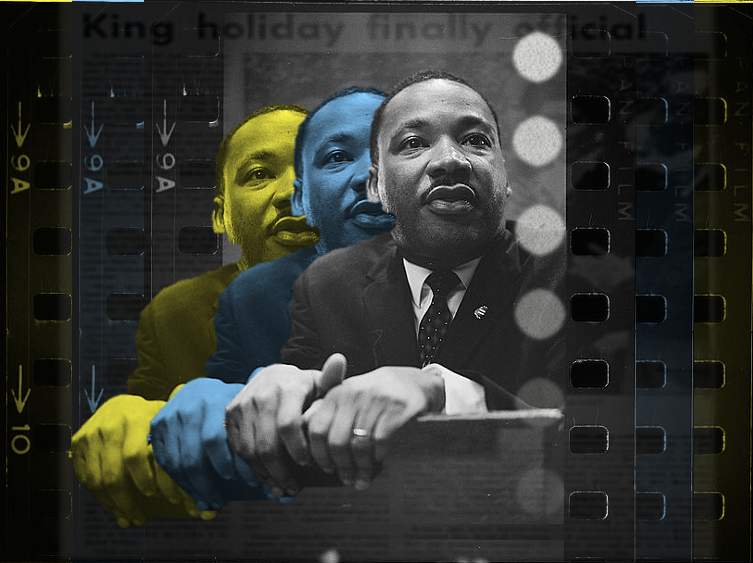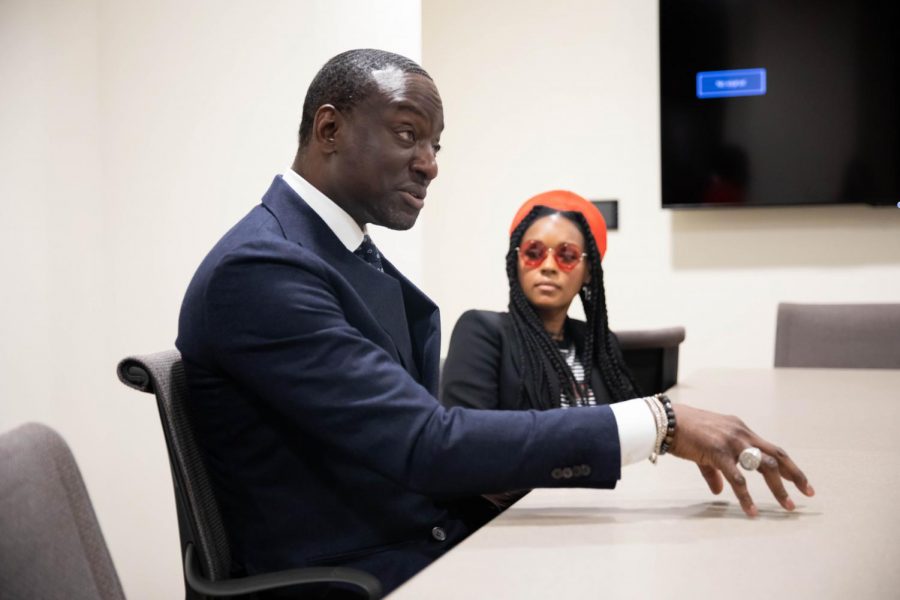Propaganda is institutionalized, and no matter how smart we are, how many tough courses we’ve taken, how many degrees we achieve or how many books we read, we are constantly victims of it, of course, by no fault of our own. It is made to manipulate our emotions, thoughts, political beliefs, behavior and overall perception of the world around us and the institutions that reign over it.
Propaganda is a pervasive pest that resurfaces in everything we love, from our favorite television shows and the music and art we consume; to everything we’re fed, from the vague messages of elected officials and the scripted lines of news anchors; to everything we’re taught, from literature to the sciences to history. Especially history.
It’s amazing that the Martin Luther King Jr. Memorial in Washington DC, a city that was most recently the site of insurrection, showcases dozens of King’s quotes, yet none of the chosen few mention the words “segregation” or “racism:” the pillars of King’s positions.
MLK Day was initially put in place as a mechanism for President Reagan to appease the negroes. He was against it when he came into office in 1981 but quickly saw it as a chance to “signal his racial sensitivity.” However, the condition was that we as a collective would focus the Civil Rights Movement on individuals rather than the issues at hand in order to pretend as though those injustices were gone with the deceased individuals we focused on. We would put the problem of racism in the past. And America could use figures like King to demonstrate its exceptionalism, for if America was able to overcome the Civil Rights Movement, then there is nothing stronger than the impenetrable “American Democracy.”
The condition of celebrating King was that we would conveniently forget all of the reasons he was one of the most hated men in America by the Federal Government. Calls for nonviolence and unity—ones that will be undoubtedly used this MLK Day as propaganda asking us to unify with white supremacists and enablers of the insurrection—did not earn him their surveillance and harassment. It wasn’t solely gratis calls for integration that led the FBI to send him a letter attempting to convince him to commit suicide. It was his radical ideas such as his proposal for the eradication of poverty through guaranteed income. It was his stark anti-war stance that intrinsically linked American war to anti-Black racism, economic exploitation and militarism. It was his vehement condemnation of the American empire’s imperialism that went beyond the Vietnam War. His advocacy for nonviolence was deeply rooted in internationalism, antimilitarism and antipoverty; he said in 1967, “A nation that continues year after year to spend more money on military defense than on programs of social uplift is approaching spiritual death.”
What made him a target of the government was his anti-capitalist views, a position that concluded that capitalism had outlived any usefulness. “It has brought about a system that takes necessities from the masses to give luxuries to the classes,” he wrote in 1952. King was an avid antimaterialist who wanted the U.S. to undergo a revolution of values. He didn’t think that we would move forward in any aspect unless we shifted from “a ‘thing-oriented’ society to a ‘person-oriented’ society.” This shift, he noted, was an unconscious move away from capitalism. He described the economic form as “a losing football team in the last quarter, trying all types of tactics to survive.”
But this is not in the common curriculum.
The condition of celebrating King is that we are to celebrate him and every other revolutionary, especially non-white ones, only in name, but not in belief.
While we may know of and be able to identify propaganda that surrounds revolutionaries and American history, we hold no power against it unless we commit to self-study. It’s not enough to know that figures like King have been sanitized institutionally without the knowledge of what he truly stood for to combat it. It’s not enough to know that our grade school history classes were diluted without delving into the reason why so much effort is put into manipulating our perceptions.
It is by conditioning that the title “I Have A Dream” automatically comes to mind in association with King. Often referred to as one of his least controversial speeches, closer readings make it clear that in addition to an end to racial segregation, he was calling for reparations, one of the most vexed and misunderstood topics of modern socioeconomic politics. “America has written us a bad check,” he said in that speech. In his next campaign in Washington, he would reckon that “we [disadvantaged people] are coming for that check.”
To commemorate King means to commemorate all of him regardless of your notions of his beliefs. If we are truly to combat the propaganda that is fed to us about not only King but every aspect of revolution, relying on the media and our courses to cover all necessary ground is myopic. We are forever students even after graduation. And while the world is our course material, it is not the teacher. Revolutionary figures are. Their speeches are asynchronous lectures. Their essays are the required readings. Analyses of those writings are supplementary material, and their interviews in conversation with each other are class discussions. The syllabus however is yours to compose.






